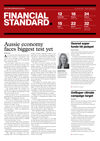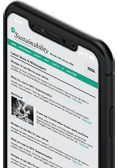APESB releases ethics, independence standardsBY KARREN VERGARA | THURSDAY, 10 JUL 2025 2:32PMThe Accounting Professional and Ethical Standards Board (APESB) launched new standards that set out new ethical and independence requirements for sustainability reporting and assurance in Australia. The amending standards relate to APES 110 Code of Ethics for Professional Accountants (including Independence Standards). The APESB said the standards "mark a significant step forward" in responding to public concerns about greenwashing and the risks to ethical behaviour relating to sustainability disclosures and assurance, the qualitative and forward-looking nature of sustainability information and the complexity of climate-related reporting. They also cover associated challenges of assuring sustainability information. The standards are based on global ethics and independence standards issued by the International Ethics Standards Board for Accountants (IESBA) and support the implementation of Australia's mandatory climate-related financial disclosures and sustainability reporting, which became effective for Group 1 entities from 1 January 2025. APESB chair Nancy Milne said: "These new ethical standards form an important foundation for Australia's sustainability reporting and assurance framework. APESB has acted promptly to ensure the standards are available in a timely manner, aligned with global best practice promulgated by the International Ethics Standards Board for Accountants (IESBA) and Australian legislative requirements." She added that they provide clarity on the ethical and independence obligations of assurance practitioners and support the goal of delivering sustainability information that's trustworthy, credible and useful for decision-making by investors. One feature of the standards is the introduction of Part 5 of the Code. This puts the same ethical and independence expectations to sustainability assurance engagements as those that apply to financial statement audits. "While the new provisions for sustainability assurance are immediately applicable to members of the three professional accounting bodies in Australia and accounting firms, they are designed to be profession-agnostic, meaning that they can be applied by assurance practitioners regardless of their background. The standards are also framework-neutral, enabling consistent application across a range of reporting and assurance frameworks," Milne said. The standards are interoperable with the Australian Sustainability Reporting Standards S1 and S2 issued by the Australian Accounting Standards Board (AASB) and the Australian Standard on Sustainability Assurance (ASSA) 5000 issued by the Australian Auditing and Assurance Standards Board (AUASB). Related News |

The head of the United Nations Joint Staff Pension Fund is taking on a new role at Northern Trust Asset Management.
Pablo Berrutti, senior portfolio specialist at Stewart Investors, discusses emerging market investment opportunities and their main growth drivers.
Latest modelling from Emmi indicates carbon emissions may plateau within the next two years before gradually declining, signalling the first ever emission stabilisation outside of an economic crisis.
The likes of Sally Field, Mark Ruffalo and Jane Fonda are calling on the SAG-Producers Pension Plan to dump its holdings in oil and gas companies.
















